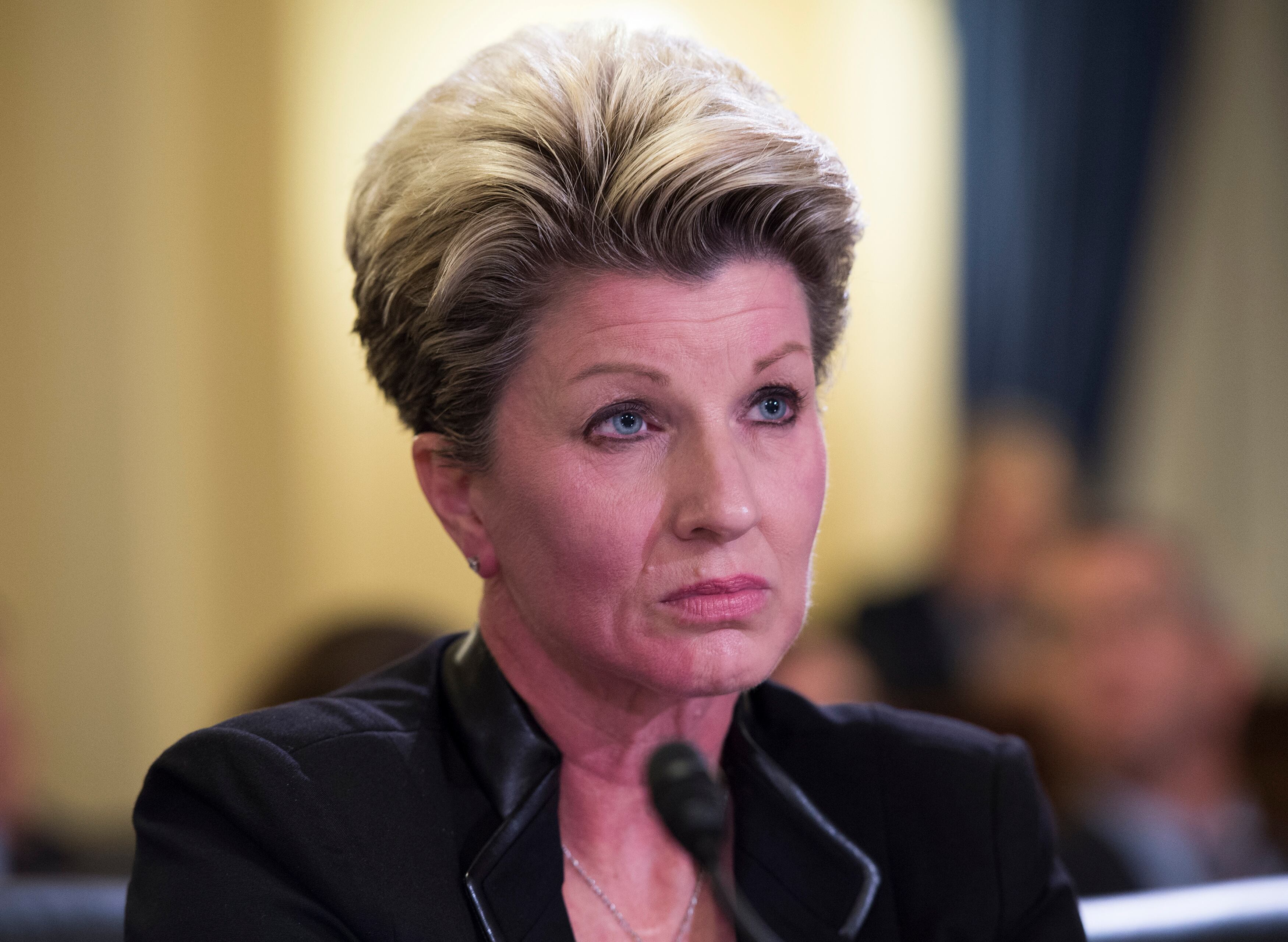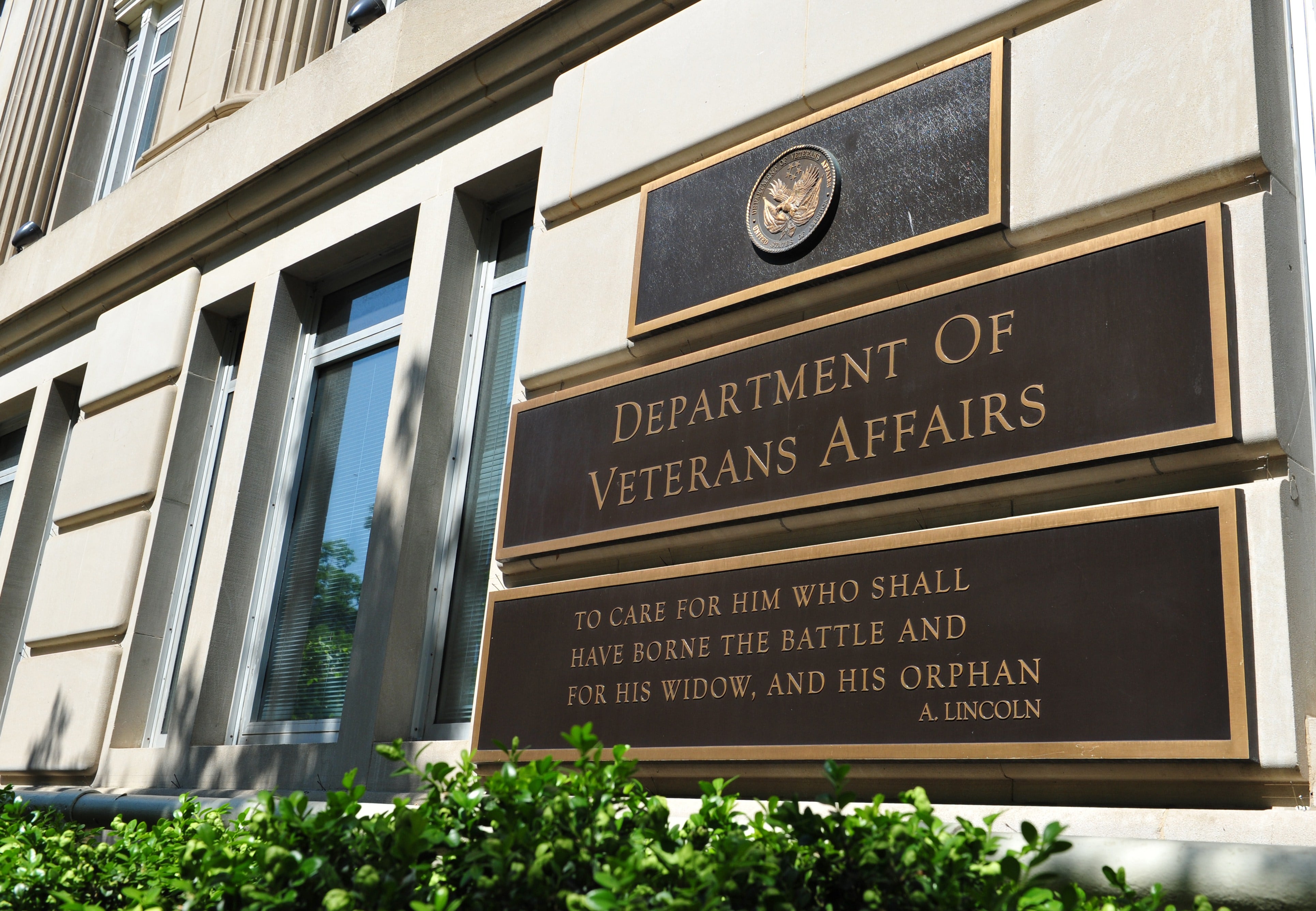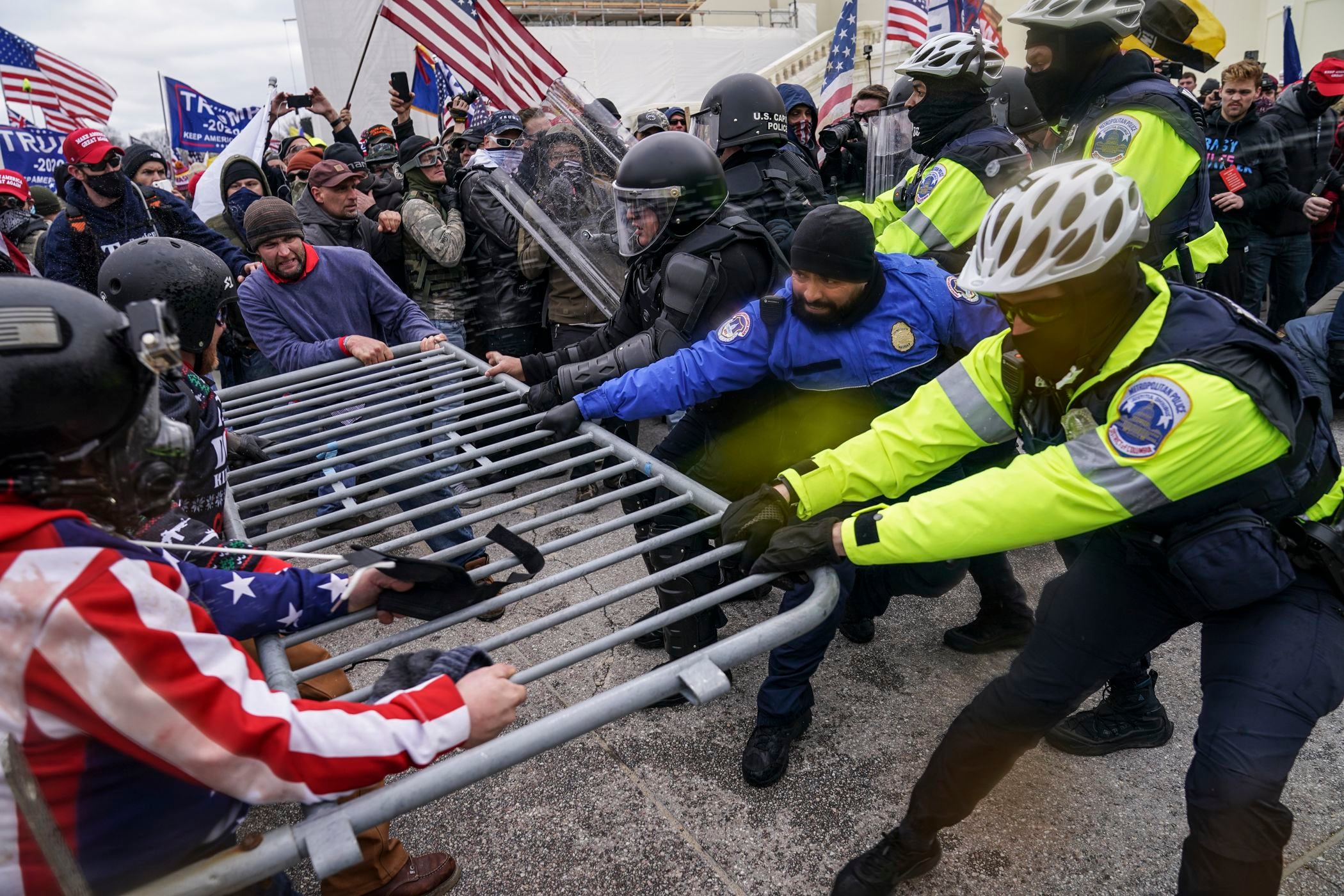Did a pair of senior Veterans Affairs Department executives get away with fraud, or were they libeled as part of a larger political spat?
That's the lingering question after Justice Department officials announced they will not charge the two women with any criminal activity, despite a scathing inspector general report that accuses the pair of abusing their power and stealing up to $400,000 in federal funds.
Lawmakers have called that a fireable and jailable offense. VA leaders have called it a management mistake, and are working on a demotion and reassignment for the pair.
For their part, the executives at the center of the department's latest accountability scandal — Diana Rubens, Philadelphia regional office director, and Kimberly Graves, St. Paul, Minnesota, regional office director — have said little.

Diana Rubens, Philadelphia VA regional office director
Photo Credit: Chip Somodevilla/Getty Images
Their attorneys have signaled they intend to appeal the demotions. Both women appeared before Congress in November but declined to answer questions, a constitutional right that critics blasted as proof of guilt.
The inspector general report released in late September charged that Rubens and Graves "inappropriately used (their) position of authority for personal and financial benefit." Both women were involved with reassigning their predecessors to other jobs within VA, then moving into the vacant positions themselves.
Investigators said the moves carried with them fewer responsibilities but no salary reductions, plus generous relocation payouts. Graves, who makes nearly $174,000 a year, got more than $129,000 to move from Philadelphia to Minnesota. Rubens, who makes $181,000, received more than $288,000 to move from Washington, D.C., to Philadelphia.
Most of that money was tied to home purchasing programs available to relocated federal employees. Lawmakers labeled their actions as harmful to veterans, taxpayers and the department as a whole.
In response to the report, VA leaders suspended use of the relocation program, and are reviewing broader reimbursement policies.
But they disagreed with investigators' assessment of abuse and corruption within the department. In testimony before the House Veterans' Affairs Committee earlier this month, Deputy Secretary Sloan Gibson lamented "the gulf between the rhetoric in the IG report and the actual evidence."
VA leaders opted for demotion rather than dismissal because "I did not find that the evidence supported unethical violation," Gibson said. "I did find that evidence supported a failure in judgment."
Several lawmakers challenged Gibson's decision not to fire the pair, citing the IG's criminal referrals. But officials with the U.S. Attorney's Office appear to have agreed with VA's assessment, declining to pursue criminal prosecution.
Instead, officials there "referred the matter to the VA for any administrative action that is deemed appropriate" and declined further comment.
VA officials also have repeatedly noted that their investigation was conducted separately from the IG's inquiry, and their findings did not show nearly the same inflammatory violations as the outside one.
In November, acting VA Under Secretary for Benefits Danny Pummill acknowledged that his agency should have been more careful in its oversight of the job transfers but told lawmakers he was still fine with the results.
"If I could go back in time, I still would have made all of the moves," he said.

Kimberly Graves, VA St. Paul, Minn., regional office director
Photo Credit: Molly Riley/AP
Despite that vote of confidence, Rubens and Graves are facing demotions and cross-country reassignments in response to the report. VA leaders have opted not to try to recoup any of the relocation expenses in question — and indicated the pair may be eligible for additional reimbursements if the pending moves proceed.
That further incensed Congress. Legislation is pending to make it easier for bureaucrats to reclaim those kinds of expenses, even if VA officials have shown no interest in doing so.
Lawmakers have promised continued oversight of the Graves and Rubens cases, but so far have offered no reaction to the Justice Department announcement.
For the past year, members of Congress have sparred with VA leaders over a lack of firings and accountability within the department, saying department officials seem more interested in protecting problem employees than improving operations.
But this latest case prompted VA's strongest pushback on those criticisms. Gibson challenged lawmakers during his December hearing, noting: "I've never encountered an organization where leadership was measured by how many people you fired ... you can't fire your way to excellence."
He promised employee dismissals when warranted, but also blamed outside critics for turning minor problems into national scandals.
Whether VA's proposed demotions for Graves and Rubens will be upheld remains to be seen. Paperwork mistakes by the VA have complicated the process, delaying the administrative action and leading to more jabs from lawmakers.
A decision on whether the pair will be moved again or stay in their current posts should be finalized by mid-January.
Leo covers Congress, Veterans Affairs and the White House for Military Times. He has covered Washington, D.C. since 2004, focusing on military personnel and veterans policies. His work has earned numerous honors, including a 2009 Polk award, a 2010 National Headliner Award, the IAVA Leadership in Journalism award and the VFW News Media award.





